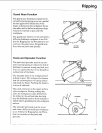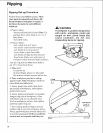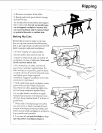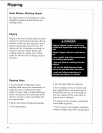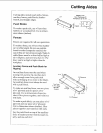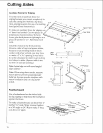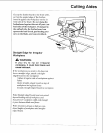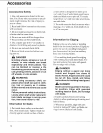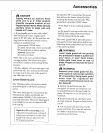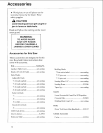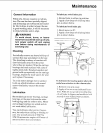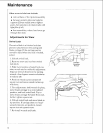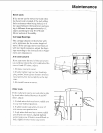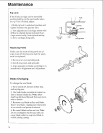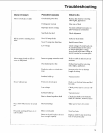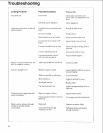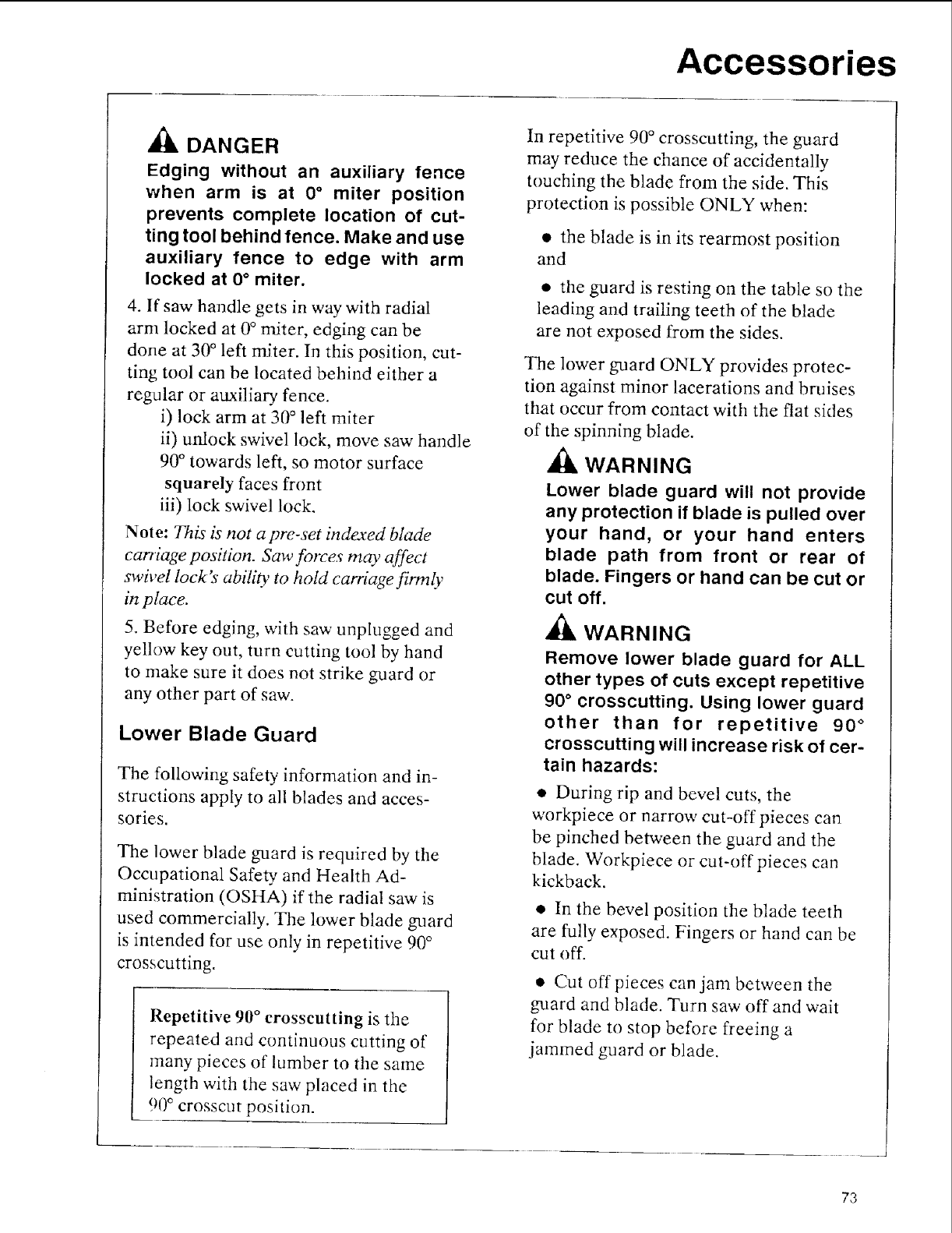
Accessories
,_ DANGER
Edging without an auxiliary fence
when arm is at 0° miter position
prevents complete location of cut-
ting tool behind fence. Make and use
auxiliary fence to edge with arm
locked at 0° miter.
4. If saw handle gets in way with radial
arm locked at 0° miter, edging can be
done at 30 ° left miter. In this position, cut-
ting tool can be located behind either a
regular or auxiliary fence.
i) lock arm at 30 ° left miter
ii) unlock swivel lock, move saw handle
90 ° towards left, so motor surface
squarely faces front
iii) lock swivel lock.
Note: This is not a pre-set indexed blade
carliage position. Saw forces may affect
swivel lock's abili O,to hold carriage firrnly
in place.
5. Before edging, with saw unplugged and
yellow key out, turn cutting tool by hand
to make sure it does not strike guard or
any other part of saw.
Lower Blade Guard
The following safety information and in-
structions apply to all blades and acces-
sories.
The lower blade guard is required by the
Occupational Safe w and Health Ad-
ministration (OSHA) if the radial saw is
used commercially. The lower blade guard
is intended for use only in repetitive 90 °
crosscutting.
Repetitive 90 ° crosscutting is the
repeated and continuous cutting of
many pieces of lumber to the same
length with the saw placed in the
90 ° crosscut position.
In repetitive 90 ° crosscutting, the guard
may reduce the chance of accidentally
touching the blade from the side. This
protection is possible ONLY when:
• the blade is in its rearmost position
and
• the guard is resting on the table so the
leading and trailing teeth of the blade
are not exposed from the sides.
The lower guard ONLY provides protec-
tion against minor lacerations and bruises
that occur from contact with the fiat sides
of the spinning blade.
WARNING
Lower blade guard will not provide
any protection if blade is pulled over
your hand, or your hand enters
blade path from front or rear of
blade. Fingers or hand can be cut or
cut off.
,_ WARNING
Remove lower blade guard for ALL
other types of cuts except repetitive
90 ° crosscutting. Using lower guard
other than for repetitive 90 °
crosscutting will increase risk of cer-
tain hazards:
• During rip and bevel cuts, the
workpiece or narrow cut-off pieces can
be pinched between the guard and the
blade. Workpiece or cut-off pieces can
kickback.
• In the bevel position the blade teeth
are fully exposed. Fingers or hand can be
cut off.
• Cut off pieces can jam between the
guard and blade. Turn saw off and wait
for blade to stop before freeing a
jammed guard or blade.
73



